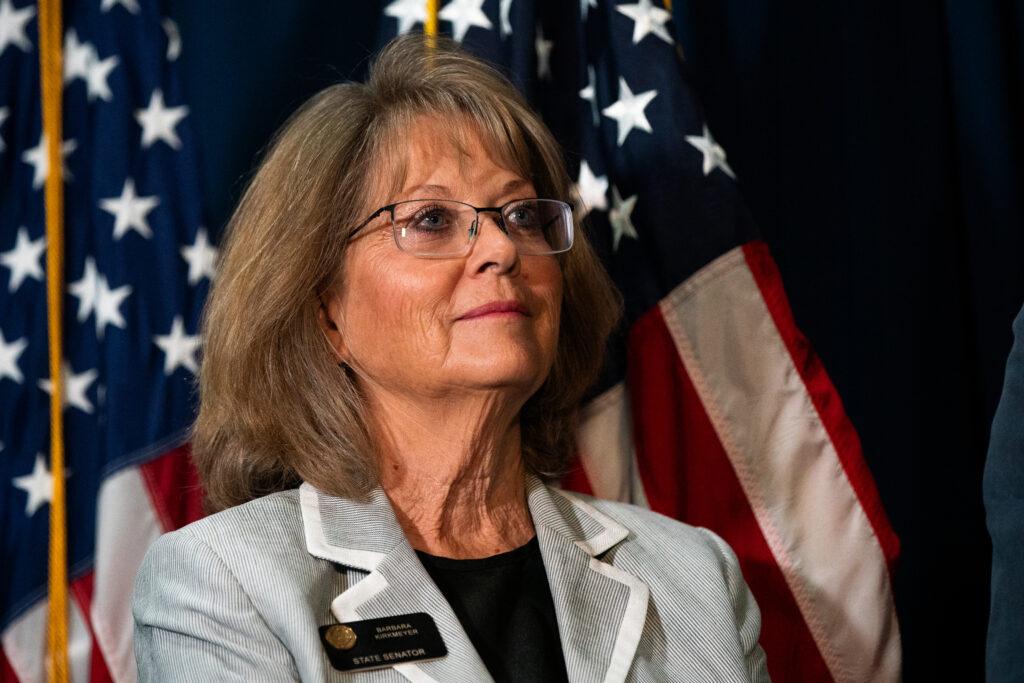
Cutting close to 700 million dollars out of next year's state budget means tough choices for Colorado lawmakers in the upcoming legislative session that begins in January.
Gov. Jared Polis presented his ideas for cuts earlier this month, but they were met with a cold reception from both Republicans and Democrats on the powerful Joint Budget Committee who said they still have lots of questions.
One of the Governor’s most controversial proposals is to privatize Pinnacol Assurance, the quasi-governmental agency that is the insurer of last resort for worker’s compensation in Colorado.
“Where will those employers and workers go?” asked Democratic Rep. Emily Sirota. She also expressed concerns about the governor’s suggestion that the state enact targeted rate cuts for some Medicaid providers.
Polis said his office looked at anything and everything to balance the budget, with the main goal of driving more efficiency and providing the same service with lower costs.
“There are very few pots of money that are big that you can do anything with,” Polis noted.
He said the options include an across-the-board 1.5 percent Medicaid provider rate cut, or slashing state support for higher education by 40 to 50 percent. As an alternative, Polis said, he’s proposing more targeted provider cuts in areas where his staff believes they would have the least impact, in addition to numerous other cost-saving proposals.
“When you’re trying to go to $680 million, there’s only a few areas of the budget that have that kind of money in them,” he told lawmakers.
Other cost-cutting measures in the governor’s proposal include:
- Changing how the state calculates school enrollment in a way that will mean less funding for districts with shrinking student bodies.
- Slowing down changes to the overall equation for school funding, so new expenses are implemented more slowly.
- One percent cuts to all departments’ personnel and operating expenses.
- Using interest from cash funds — essentially bank accounts dedicated to specific state programs — to pay for general expenses.
“I appreciate all the work that has been done to get to balance,” said Democratic Sen. Jeff Bridges, the budget committee’s chair. But he also warned that the ways the governor got there may not align with the legislature's priorities.
Republican Sen. Barbara Kirkmeyer told the governor she didn’t take his budget proposal seriously, noting it appears to take $150 million from K-12 schools. She also warned the proposal would underfund higher education and require colleges and universities to raise tuition by 6-7 percent.
“Which is something this budget committee for the last few years has been pretty clear we’re not in support of,” she said.
Colorado’s constitution requires lawmakers to pass a balanced budget. In fact, it’s their only mandate during the four-month-long legislative session that starts in January.

Kirkmeyer later told CPR News the governor’s proposal wasn’t worth the paper it was written on: “It’s going to change.”
Kirkmeyer said she’d support things like a state hiring freeze and asking departments to find 10 percent to cut out of their budgets.
In response, the governor’s budget director, Mark Ferrandino, pushed back that cutting so much from a single department would require eliminating entire programs.
Why the state is in this fix
State budgets have grown at a solid clip for several years, after getting a huge boost from federal pandemic spending.
But that has come to a dramatic end in the current fiscal year, with lawmakers looking to pare back approved spending and restrict increases in the next budget.
For her part, Kirkmeyer blamed Democrats, who control the statehouse, for over-spending, calling the current situation a self-imposed recession.
“Our revenues are coming in, they're fine. We just flat out overextend it,” she said.
But Democrats point to other factors, such as an unexpected increase in Medicaid costs and a drop in inflation. Under Colorado’s TABOR amendment, state spending can only increase by population growth plus inflation each year.
Lower inflation “is very good news for people who won't see costs going up as much, but is more challenging for the budget,” said Polis.
Despite the need for budget cuts, Colorado is still projected to pay out taxpayer refunds next year, as well as instituting a new tax credit for families.
Democratic Rep. Shannon Bird said after the state’s September economic forecast, which foretold a $900 million shortfall in the next budget, they all realized the task ahead was grave.
“It’s a lot of money to cut while recognizing we have core priorities in the state that we honor,” she said. “How do we do this in a way that doesn’t hurt the people we intend to serve?”









